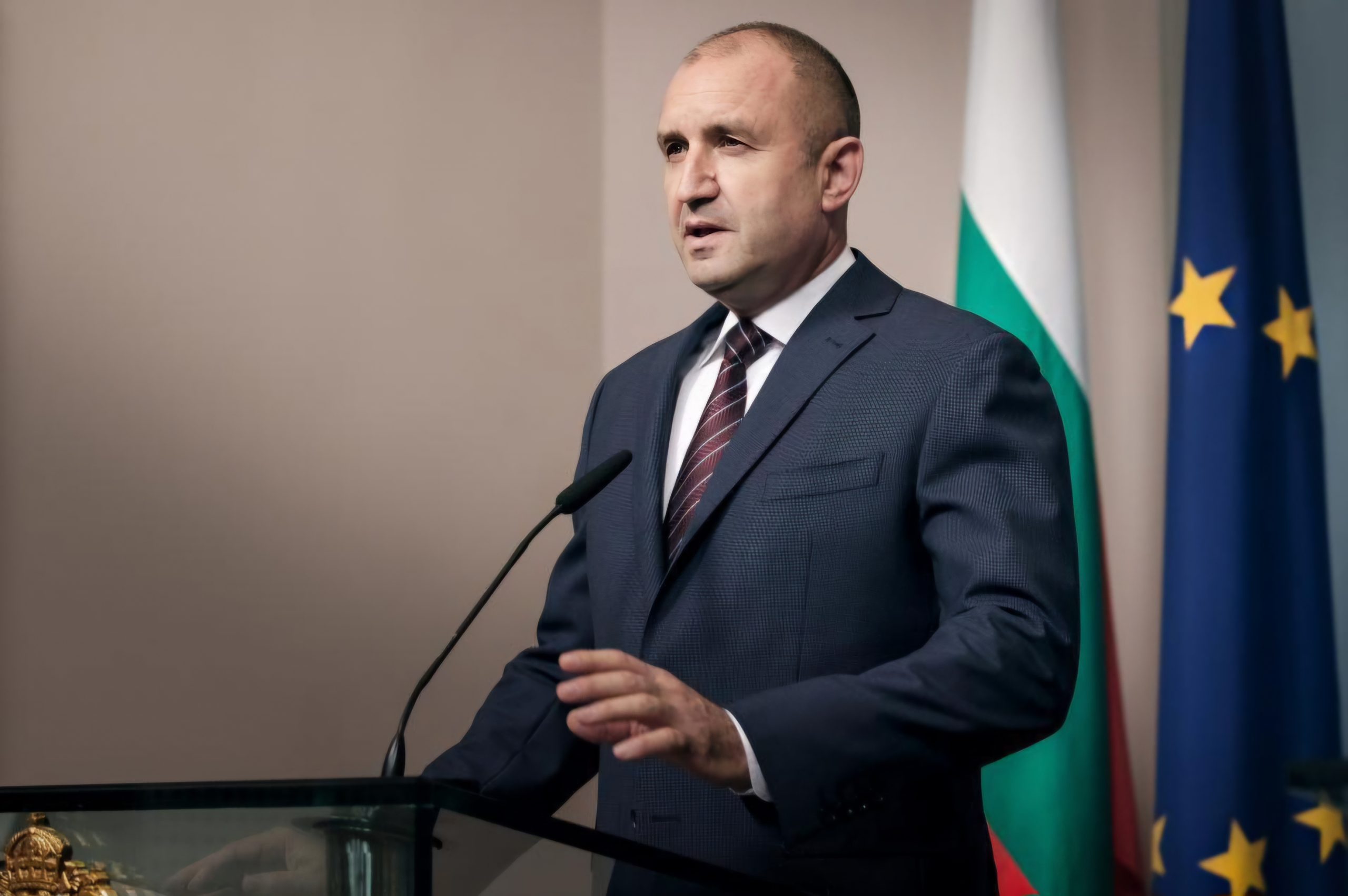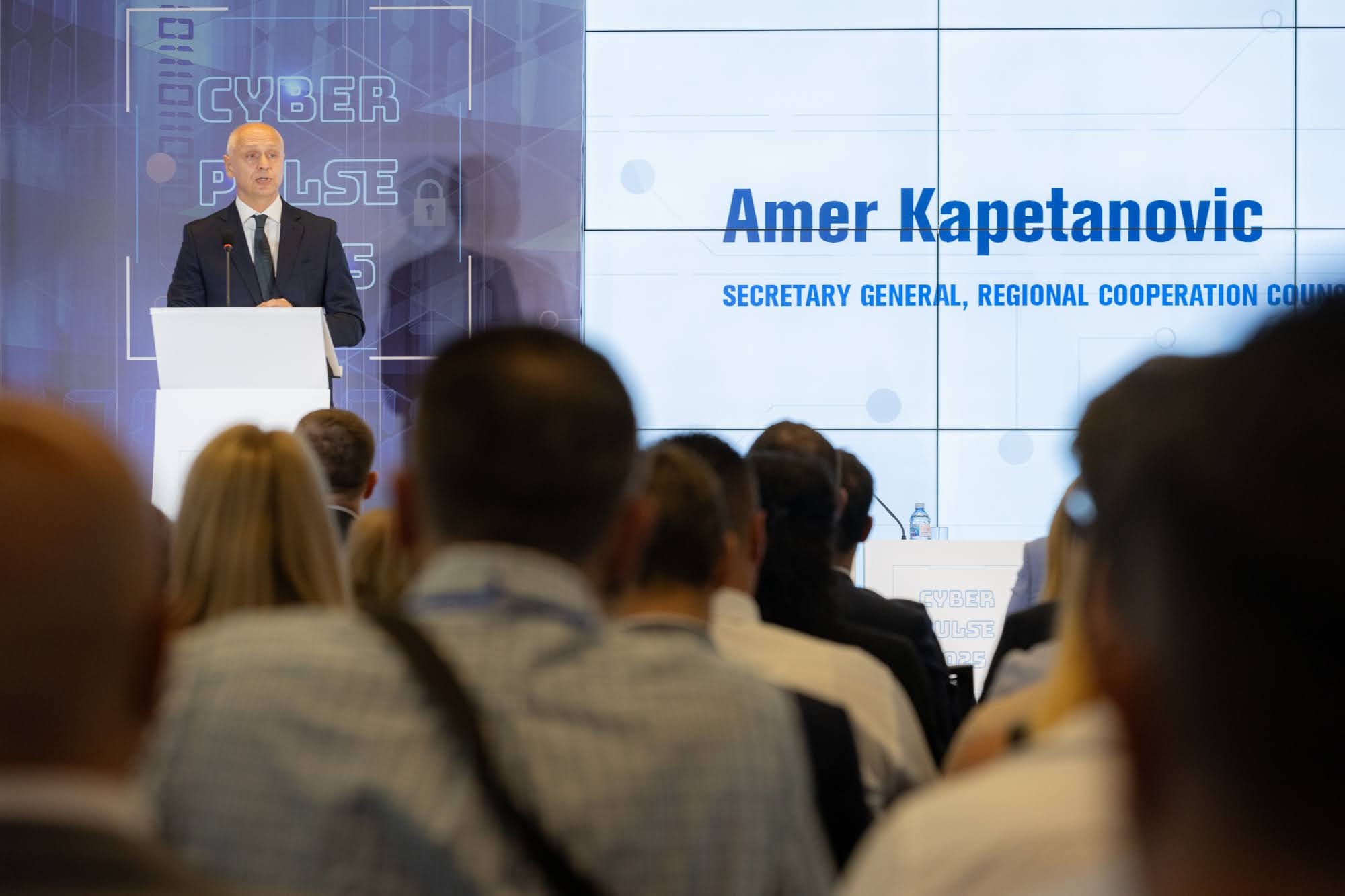Government officials, EU representatives, cybersecurity experts, and private sector leaders gathered in Podgorica on Tuesday for the opening of CyberPulse 2025: Tracking Progress, Building Resilience, Driving Change, a high-level conference aimed at strengthening regional cooperation against growing cyber threats in the Western Balkans.
Organised by the Regional Cooperation Council (RCC) in partnership with the European Commission and the Western Balkans Cyber Capacity Centre, the conference comes at a time of intensifying cyberattacks across the region. Cyber incidents increased by 40% in the past year alone, while ransomware attacks surged by 200% over the last two years, according to figures presented at the event. Ransom demands reportedly averaged €150,000, with some cases exceeding €1 million.
Opening the conference, RCC Secretary General Amer Kapetanović warned that the region’s digital infrastructure remains critically vulnerable despite widespread internet penetration and relatively strong ICT education rates.
“Cybersecurity is not only about technology — it’s about trust, people, and partnerships,” Kapetanović said. “Our strongest firewall will be our shared goals and the political will to achieve them. RCC will continue to lead coordinated regional efforts because cyber threats do not respect borders, and neither should our response.”
The Western Balkans boasts a higher percentage of ICT graduates (7%) than the EU average (4.5%), yet it suffers from a severe shortage of cybersecurity professionals. While 85% of the region’s citizens are internet users, digital protections lag behind.
Kapetanović announced the upcoming launch of a regional cybersecurity needs database, developed jointly by RCC, the European Commission, and the Integrated Internal Security Governance (IISG) initiative. The database is set to be presented at the Donor Coordination Meeting, which is taking place in parallel with the conference.
Montenegro’s Deputy Prime Minister Filip Ivanović also addressed the opening session, stressing the importance of aligning national cyber capacities with shared regional goals. Michael Docherty of the European Commission reiterated Brussels’ firm support for deepening cybersecurity cooperation in the region.
Gilles Schwoerer, Director of the Western Balkans Cyber Capacity Centre, highlighted the Centre’s expanding role in regional training and capacity-building programmes.
Throughout the day, CyberPulse 2025 will host five thematic panel discussions covering priority issues in cybersecurity. Topics include the increasing role of artificial intelligence and emerging technologies, development of cyber skills, multi-sector strategies for security operations centres (SOCs), and cross-sectoral cooperation mechanisms.
Panellists include experts from Europol, the EU Agency for Cybersecurity (ENISA), Women4Cyber, national cybersecurity agencies, civil society organisations, and leading technology firms.
The conference is expected to produce concrete recommendations for advancing regional cyber resilience and improving policy coordination between national governments, EU institutions, and private stakeholders.



